ACPR Main scenarios and assumptions of the climate pilot exercise
On May 2020, French Prudential Supervision and Resolution Authority (ACPR) launched the climate pilot exercise which intend to measure the physical and transitional risks to…

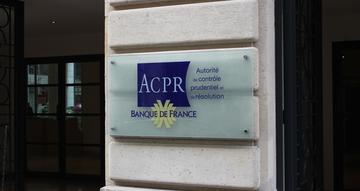
On May 2020, French Prudential Supervision and Resolution Authority (ACPR) launched the climate pilot exercise which intend to measure the physical and transitional risks to…

On November 2020, European Central Bank (ECB) published a guide on climate-related and environmental risks outlining the ECB’s understanding of the safe and prudent management…
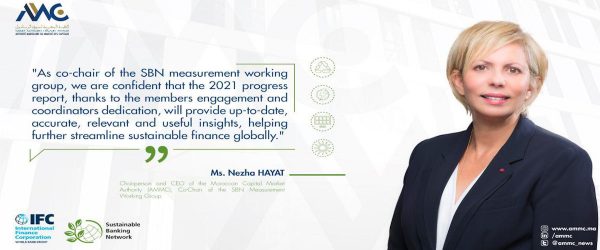
Dear SBN members, First, I wish you all a happy new year 2021, and welcome you to this virtual workshop dedicated to sustainable finance and…
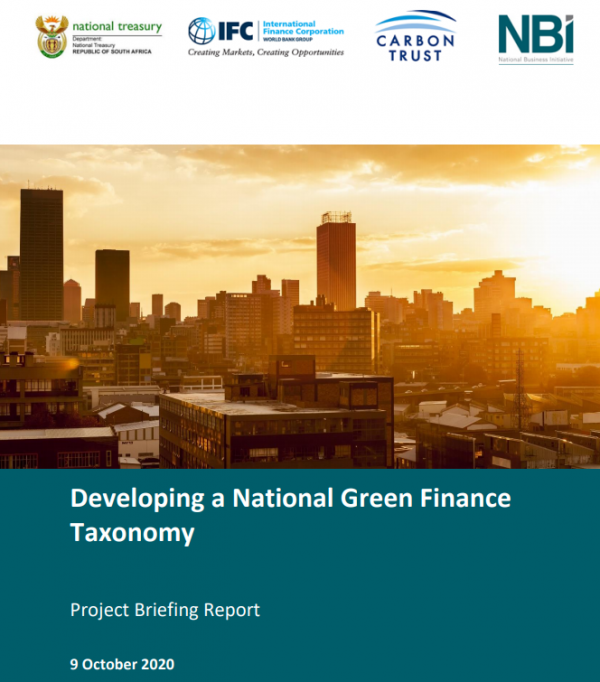
Under the leadership of National Treasury, and with support from IFC , the National Business Initiative (NBI) and Carbon Trust are working to develop a first national Green Finance Taxonomy for…
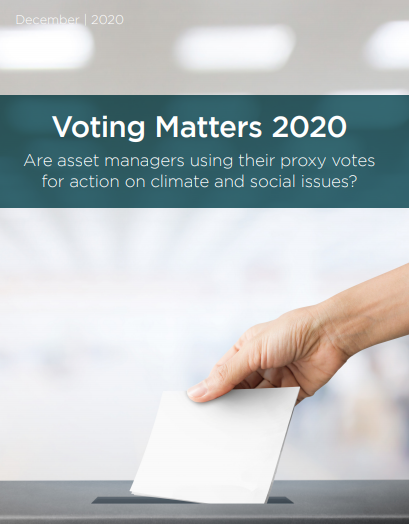
Stewardship is in the spotlight. In the UK, government strategy is to use the influence of pension funds to lead the fight against climate change. The recently launched…
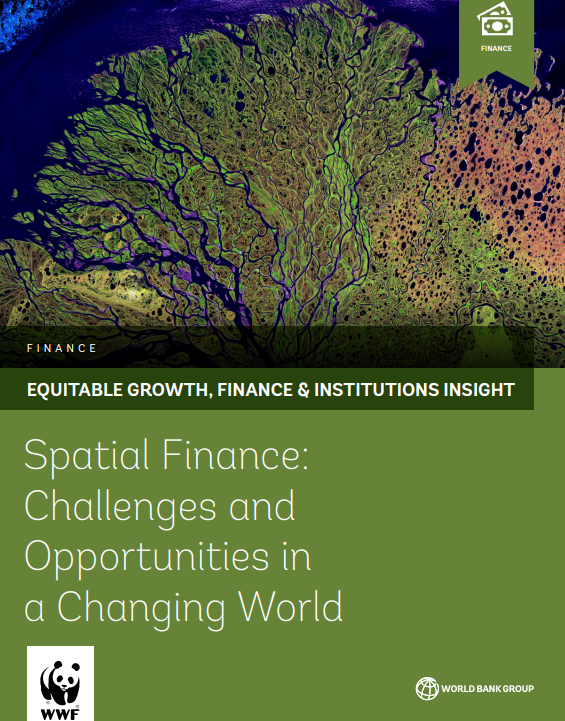
If financial markets are to realign towards truly sustainable development the financial sector needs to differentiate commercial actors more accurately on their climate and environmental…
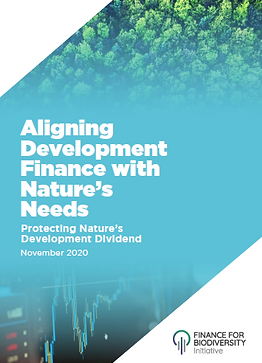
This report uses readily available data to estimate the dependency of development finance institutions’ (DFIs’) collective balance sheet on vulnerable nature (“dependency risk”), alongside the…

Climate change is one of the greatest challenges of our time, requiring far more capital than governments alone can provide. Private sources of finance are…
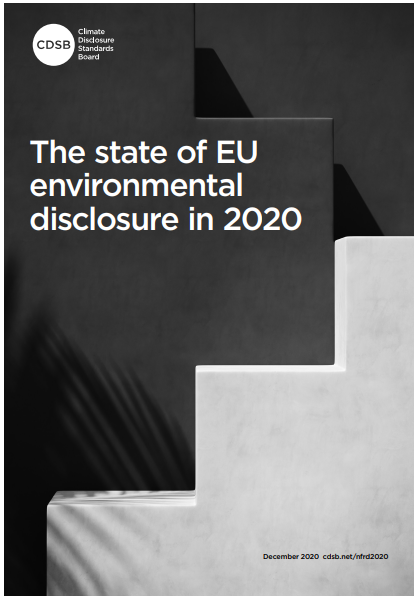
In this report, Climate Disclosure Standards Board (CDSB) reviewed the 2020 environmental disclosures of 50 of Europe’s largest listed companies, with a combined market capitalisation of US$3.5…
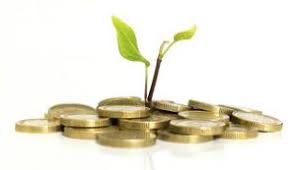
This report was prepared by the OECD in response to a request by developed countries to help better understand climate finance trends. It provides insights on…
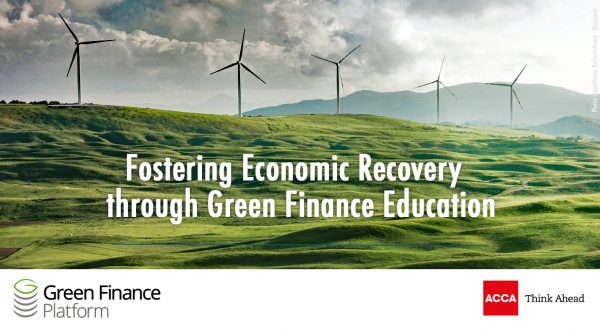
At joint online event, experts explore the increasing need for the finance sector to develop new capabilities through relevant education and training in green finance…
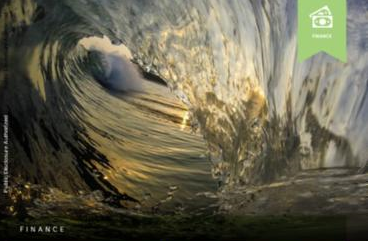
The world is on an unsustainable path. Financial sector participants are becoming more conscious of the impact of their economic, social and environmental footprint. As…
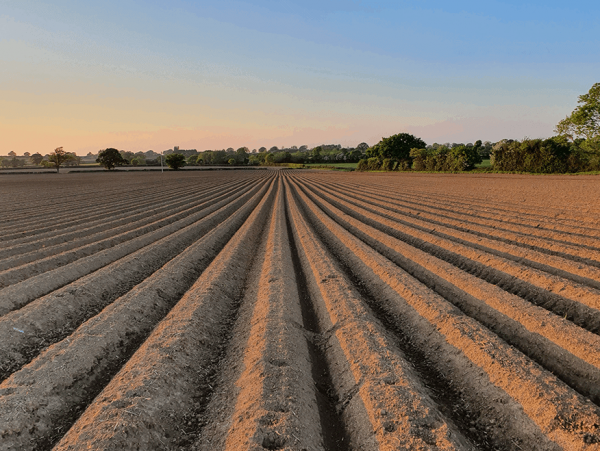
London – The Global Innovation Lab for Climate Finance (“the Lab”) has launched an initiative to focus funders and investors on Lab-endorsed projects for sustainable…

The post-COVID-19 reconstruction phase should be centred around the green economy, the concept of which enables economic growth and investment while increasing environmental quality and…
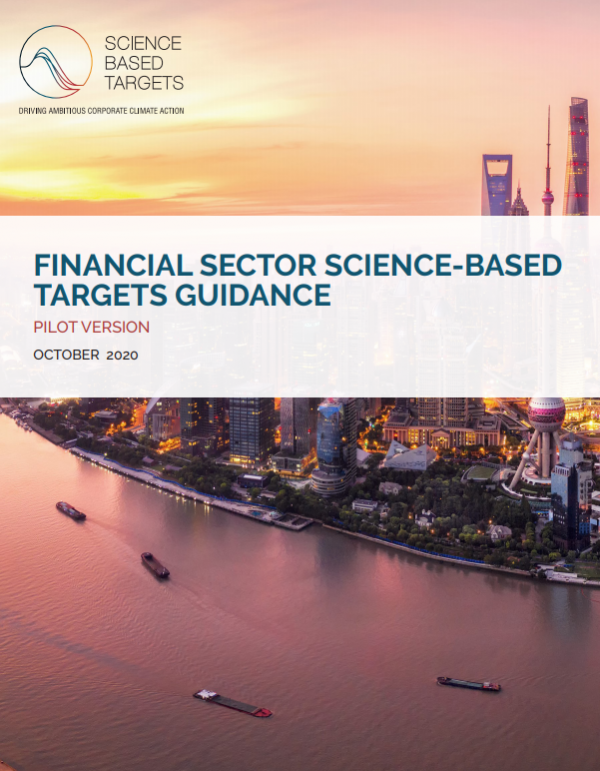
The COVID-19 pandemic has accelerated several ongoing transitions, including the interdependence between financial institutions and our changing climate. While financial institutions’ business models are vulnerable to climate…
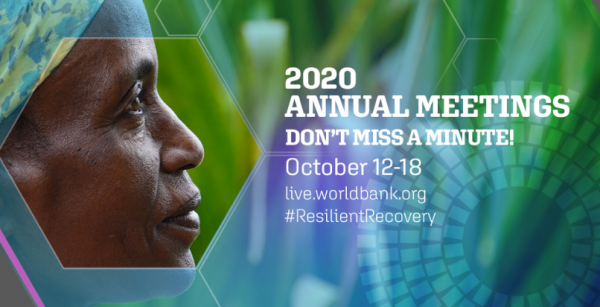
How can the world recover from the coronavirus pandemic while also addressing climate change and biodiversity loss? A Sustainable Recovery for People and Planet brought together policymakers,…
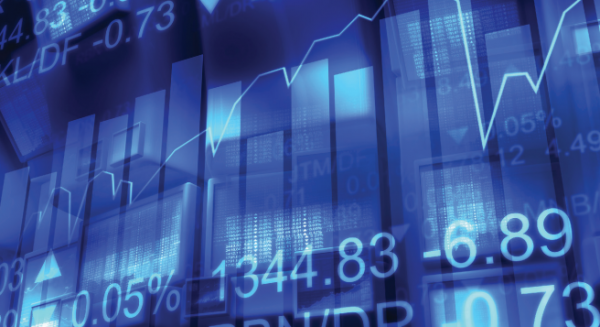
What drives companies to have their climate data verified, and what are the advantages of doing so? The business benefits of independent third party verification…

At the 2020 Annual Meeting in Davos, 120 of the world’s largest companies supported efforts to develop a core set of common metrics and disclosures…

Public finance is one of the most powerful tools at our disposal to accelerate global progress toward net-zero economies, yet far too little has been…
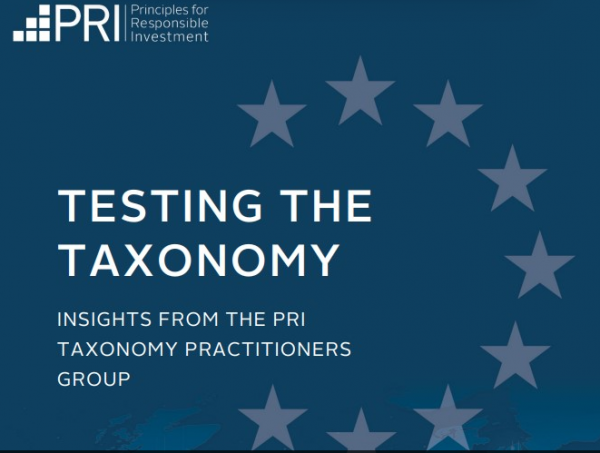
This report shares insights from the first comprehensive set of case studies around how to use the EU taxonomy. Starting in late 2019, over 40…
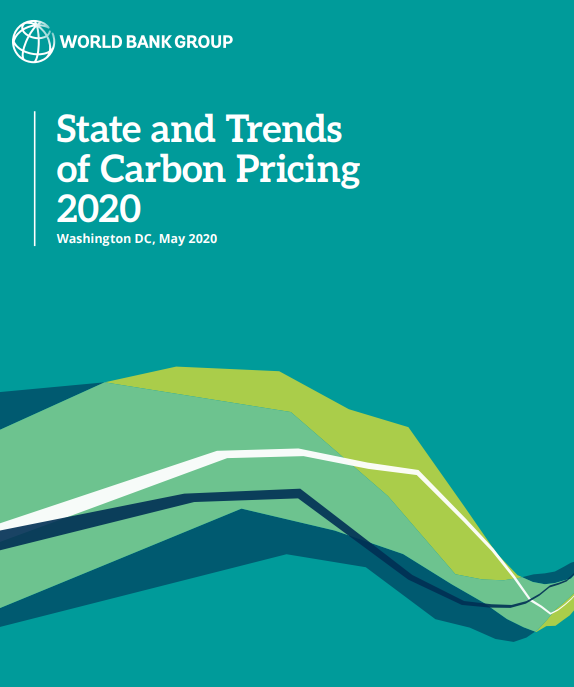
Domestic carbon pricing initiatives have been strengthened as jurisdictions around the world adopt more ambitious mitigation targets and introduce associated policy tools. This is particularly…
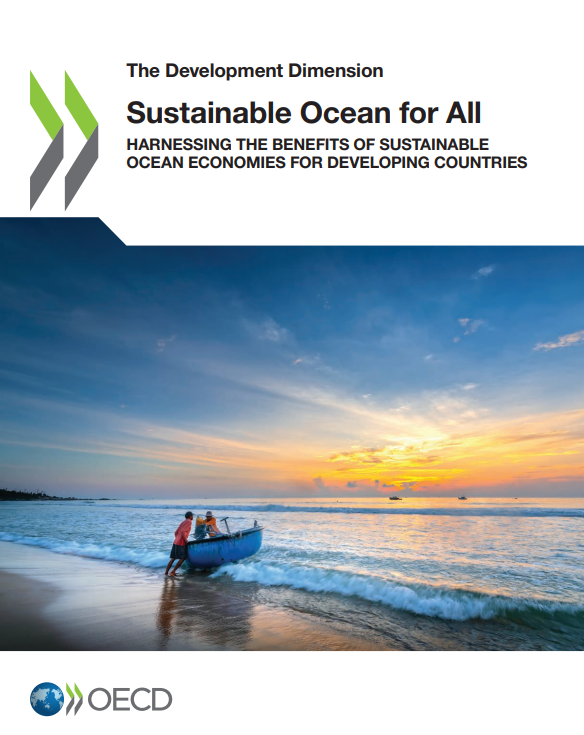
Adopting more sustainable ways of managing the ocean is a global priority: protecting its health will bring benefits to all. Developing countries face specific challenges,…
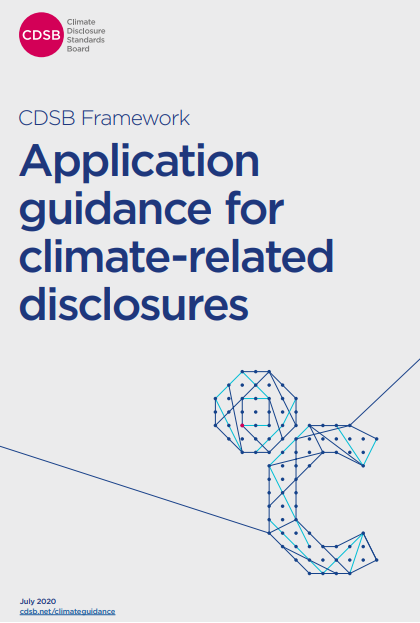
The Climate Guidance has been designed to help companies put into place the thinking and processes necessary for high-quality material climate disclosures and allow them…
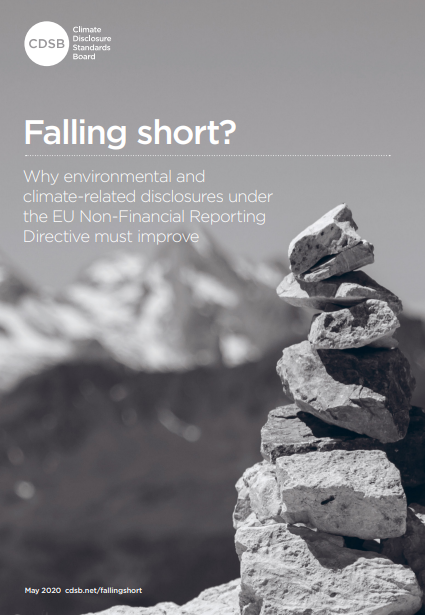
CDSB has reviewed the 2019 environmental and climate-related disclosures of Europe’s 50 largest listed companies, with a combined market capitalisation of US$4.3 trillion, under the EU Non-Financial…
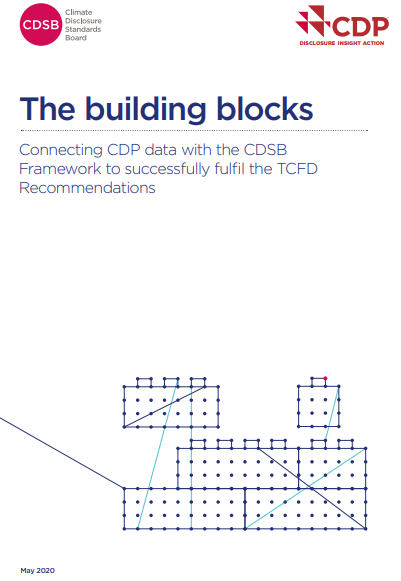
More than 1000 organisations have declared their support for the Task Force on Climate-related Financial Disclosures (TCFD) recommendations. However, there is still confusion in the market…
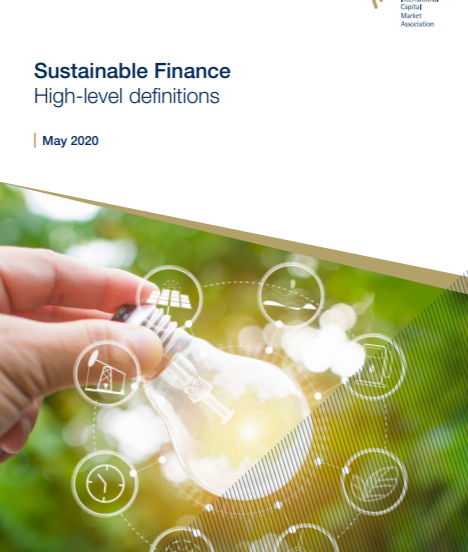
Sustainability has become a mainstream consideration for the financial sector as illustrated among others by the success of the green, social and sustainability bond markets…
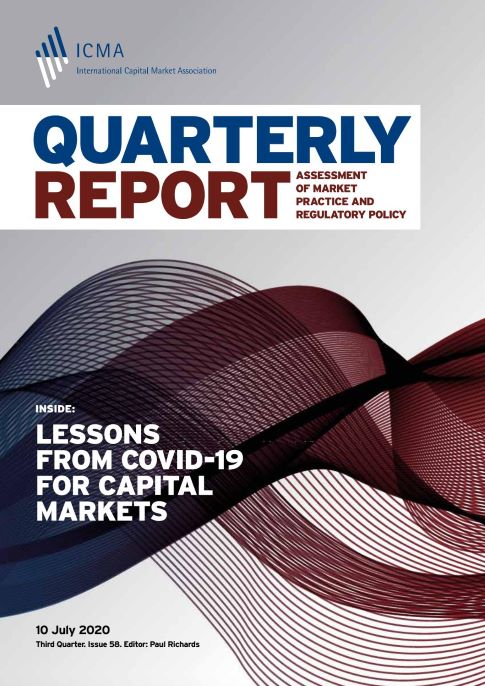
The ICMA Quarterly Report for the Third Quarter of 2020 focuses on the lessons from COVID-19 for capital markets. The Foreword by Jean-Marc Mercier of…
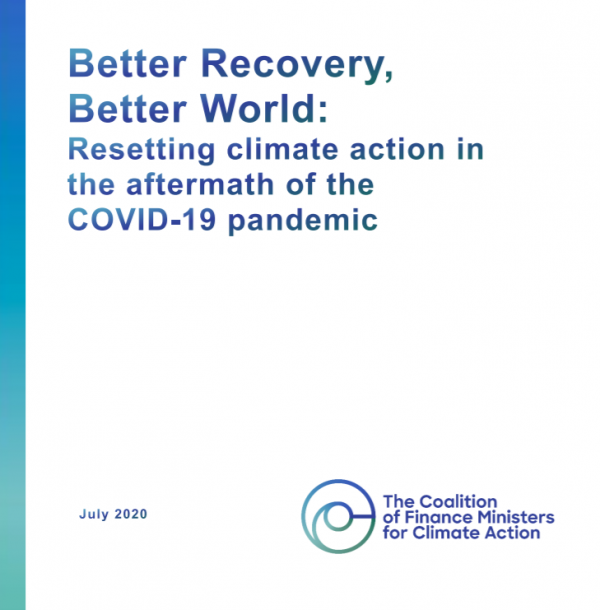
The world has been transformed by the COVID-19 crisis. Beyond its tragic human costs and loss of life, the pandemic and the necessary lockdowns have…

In response to the Paris Agreement, governments and intra-governmental organizations launched a number of measures to promote sustainable finance. To date, these have focused on voluntary…
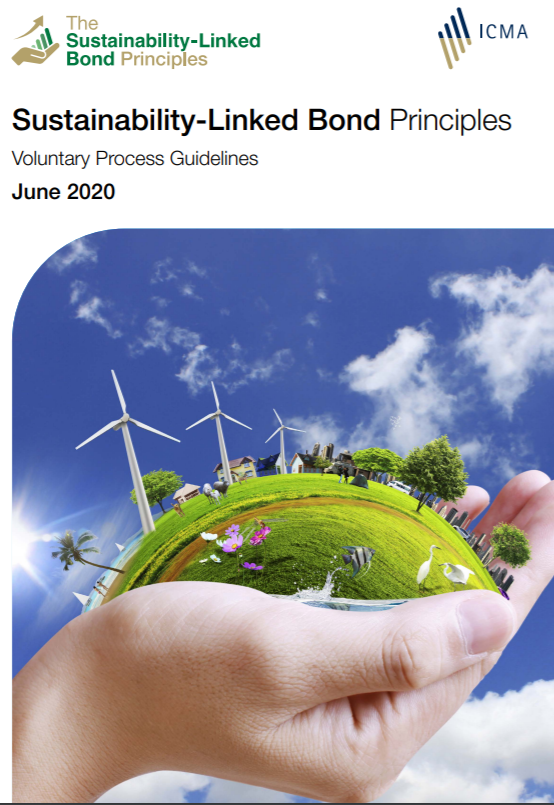
Sustainability-Linked Bonds (“SLBs”) aim to further develop the key role that debt markets can play in funding and encouraging companies that contribute to sustainability (from…
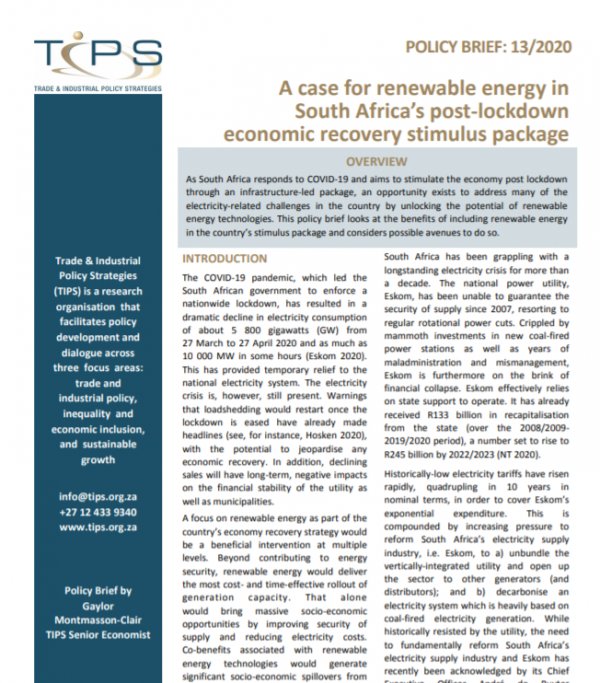
This policy brief lays out the key advantages for South Africa to invest in renewable energy as a post-COVID-19 stimulus package. This policy brief argues…

Climate-related financial risks refer to the set of potential risks that may result from climate change and that could potentially impact the safety and soundness…

Produced by the PRI, How Responsible Investors should respond to the COVID-19 Coronavirus crisis explores impacts of current pandemic and the global response to it,…

In the context of the COVID-19 pandemic, this paper was developed to support thinking on how to respond to the pandemic from a sustainable finance…

This policy tracker summarises the key economic responses governments are taking to limit the human and economic impact of the COVID-19 pandemic. The tracker includes…

This cutting-edge Toolkit provides an interactive database to help business find the right tool to measure and value natural capital as they use the Natural…

Truvalue Labs has created a the Coronavirus ESG Monitor to surface trends and insights where the Covid-19 pandemic intersects with environmental, social and corporate governance…

The COVID 19 pandemic has led, in addition to dramatic health implications for people around the globe, to an almost immediate and profound economic upheaval…
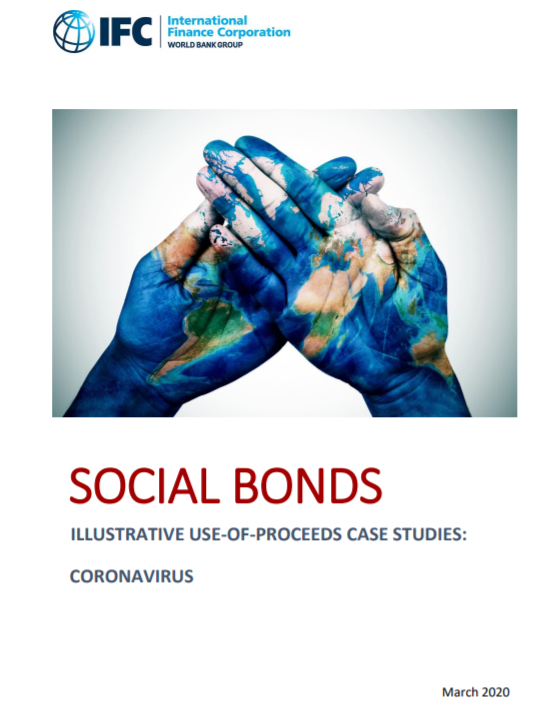
The global coronavirus crisis is a social issue that threatens the well-being of the world’s population, especially the elderly and those with underlying health conditions….
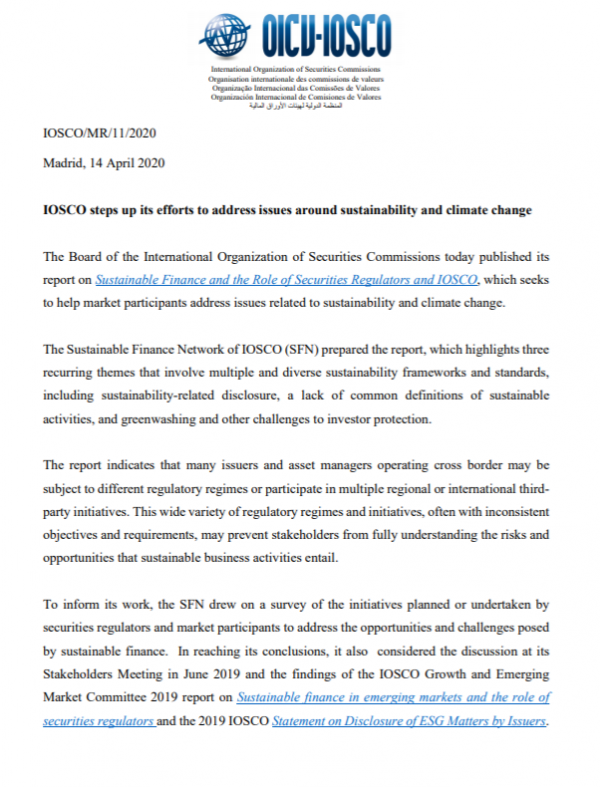
The Board of the International Organization of Securities Commissions today published its report on Sustainable Finance and the Role of Securities Regulators and IOSCO, which…
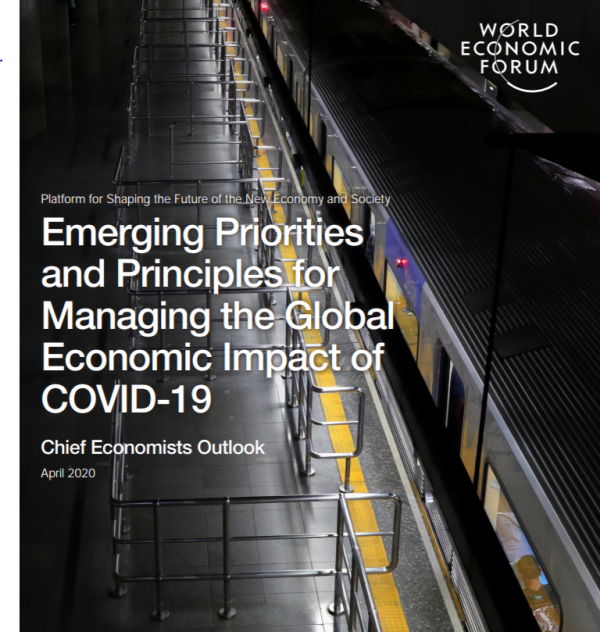
This briefing is the outcome of consultations with leading chief economists from both the public and private sectors and leaders from the Stewardship Board of…
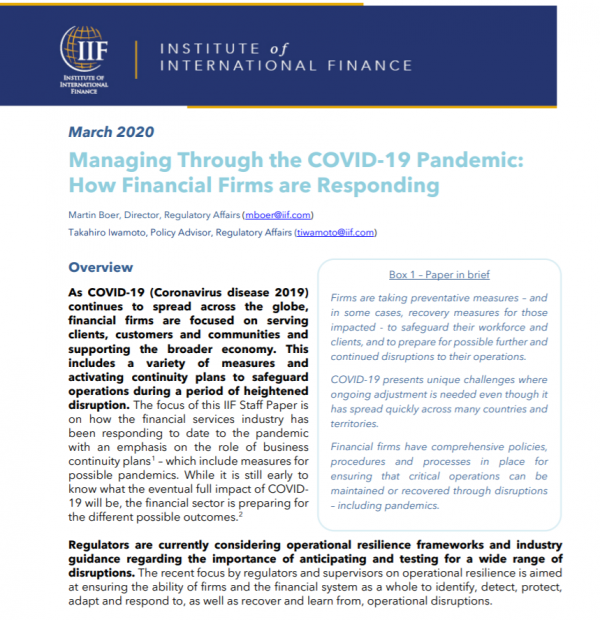
As COVID-19 (Coronavirus disease 2019) continues to spread across the globe, financial firms are focused on serving clients, customers and communities and supporting the broader…
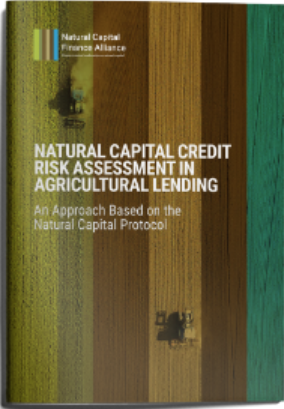
LENDING an Approach Based on the Natural Capital Protocol Agriculture is a high risk sector both in terms of its dependencies and impacts on natural…
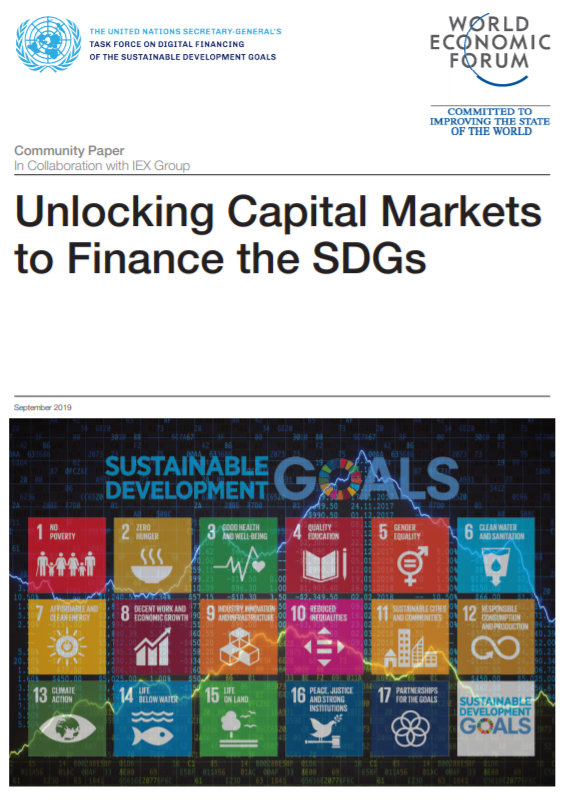
This report summarizes insights generated by a diverse group of influential institutional investors and their advisers – all specialists in sustainability – in order to…
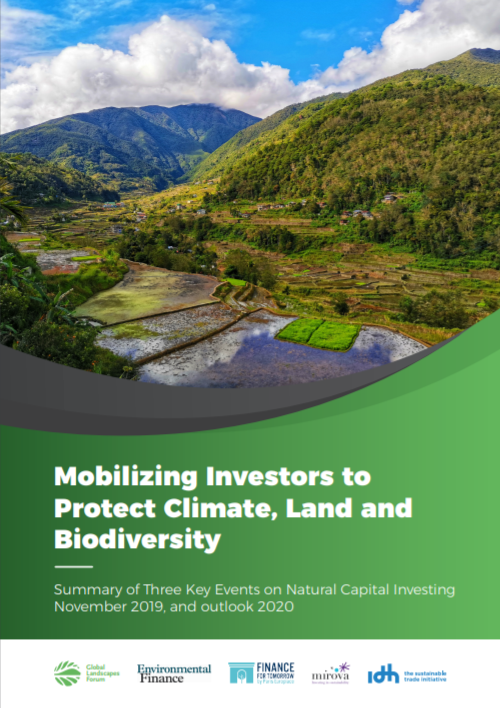
Summary of Three Key Events on Natural Capital Investing November 2019, and outlook 2020 Global Landscapes Forum summary How can we move sustainable land-use financing…
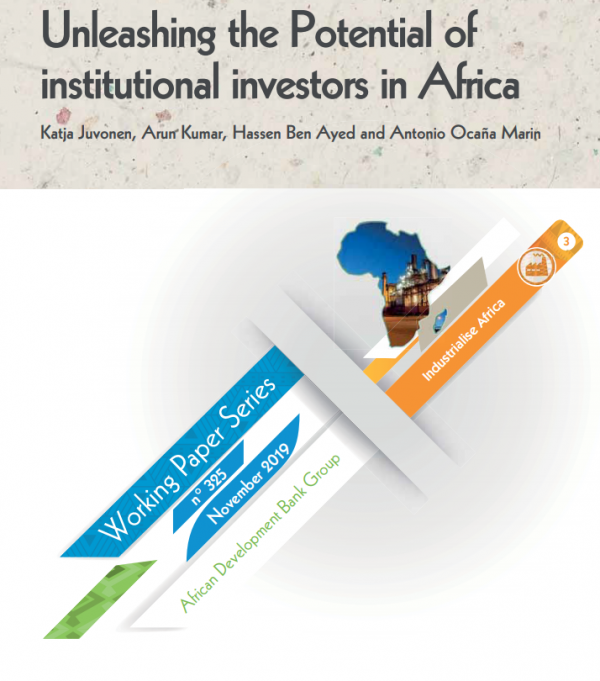
It has been estimated that financing the UN Sustainable Development Goals (SDGs) globally will require annual investment levels of USD 3-4 trillion, while in Africa associated investment…

The Inquiry into the Design of a Sustainable Financial System has been initiated by UN Environment to advance policy options to improve the financial system’s…

Undoubtedly, one of the key challenges to achieving the Sustainable Development Goals (SDGs) over the next decade will be the ability to mobilize resources to…
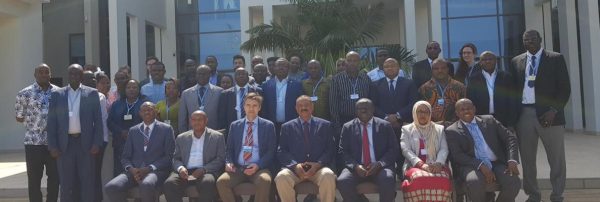
The adverse impacts of climate change are a threat to the livelihoods of people and the steady development of almost all sectors of the economy…

As corporates proactively implement measures to operate more responsibly and improve their Environmental, Social and Governance (ESG) performance, 2020 is shaping up to be a…
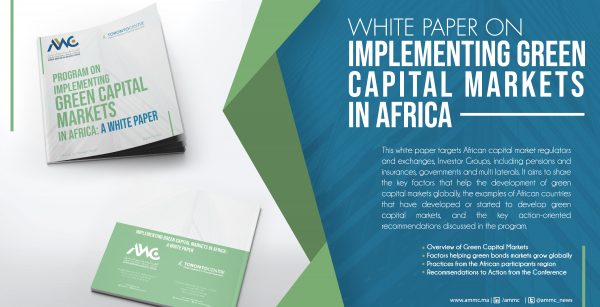
Following “Implementing Green Capital Markets Program” organized in line with Marrakech Pledge on the 4th and 5th November 2019, AMMC and Toronto Centre publish this…
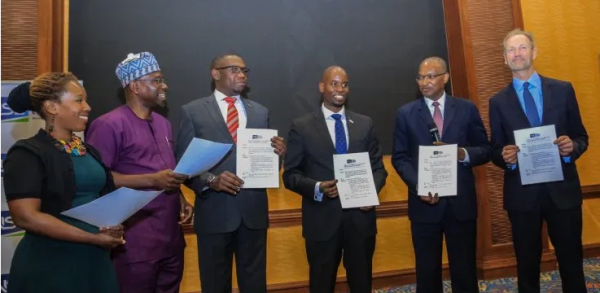
NAIROBI, Aug 15 (Reuters) – Kenya has approved its first ever issuance of a green bond, which will raise 5 billion shillings ($48.45 million) for…

The Bond Market and especially the African Green Bond Market is a topic that is attracting a lot attention and also lots of questions. We’ve…

Access Bank Plc has announced the issuance of the 1st Certified corporate green bond in Africa, raising N15 billion (USD41 million). The launch ceremony was held…
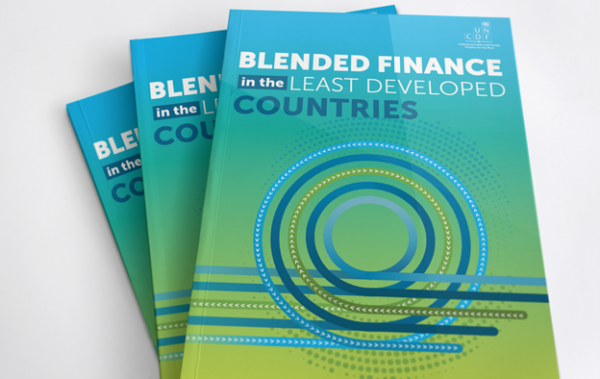
The world’s 47 least developed countries (LDCs) are among those most at risk of being left behind. While official development assistance and domestic public resources…

Mauritius is planning to create a Green Bonds Market with the help of PAGE – the Partnership for Action on the Green Economy. Green bonds…
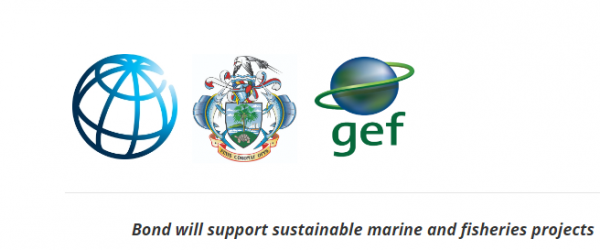
The Republic of Seychelles has launched the world’s first sovereign blue bond—a pioneering financial instrument designed to support sustainable marine and fisheries projects. The bond,…

“With renewed commitments to combat climate change, institutional investors whose assets under management are expected to rise from $93 trillion to $140 trillion 2019, are increasingly…
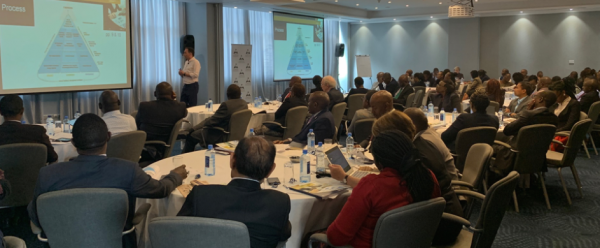
The Capital Market Authority in Kenya (CMA) and the Nairobi Securities Exchange (NSE) joined the IFC and UN Sustainable Stock Exchanges (SSE) initiative in engaging…
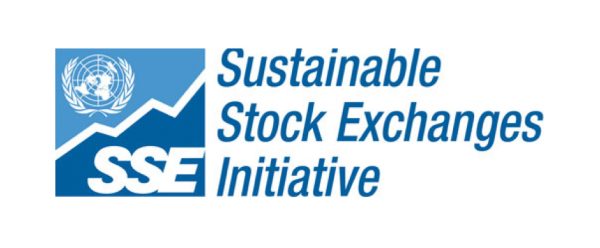
The Moroccan Capital Market Authority (AMMC) joined SBN in December 2018. AMMC is regional co-chair of the SBN Green Bond Working Group and will continue…

(18 January 2019) IOSCO, the International Organization of Securities Commissions, released a statement on disclosure of ESG matters by issuers on 18 January 2019. The statement sets…

The initiative according to a release to the Ghana News Agency, aims to scale up finance for projects that were resilient to the impacts of…
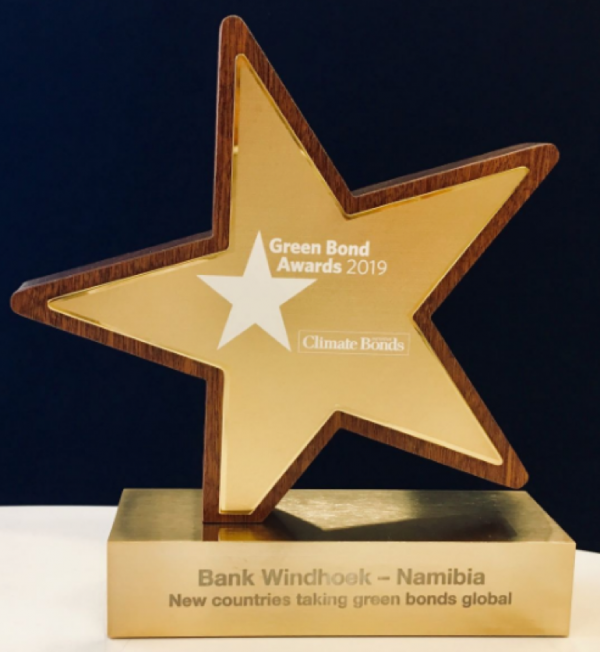
“We are seeing emerging economies stepping up their efforts and taking active regional roles, demonstrating much needed leadership. To reach the vital goal of the…
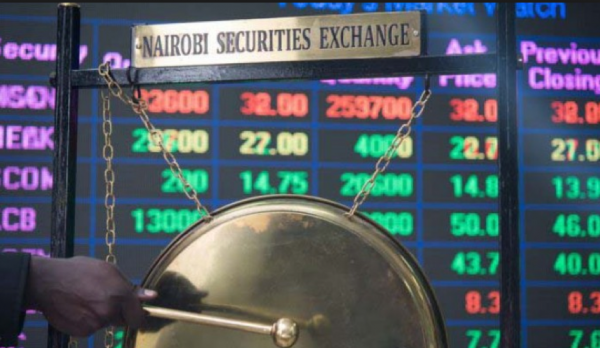
Like other African nations, Kenya needs to raise billions of dollars to invest in infrastructure projects including roads, water and irrigation, railways and power generation….
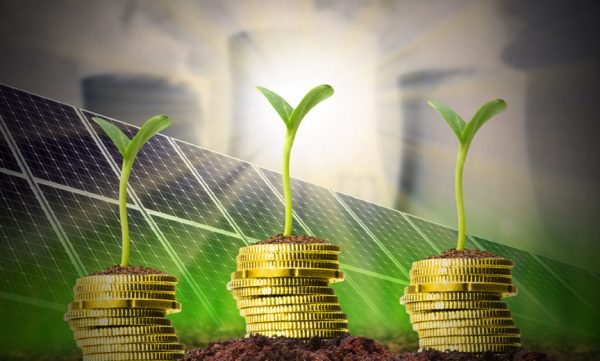
On October 30th, 2018, the Moroccan Capital Market Authority (AMMC) approved a prospectus concerning the issuance of ordinary and sustainable bonds (of the Social &…
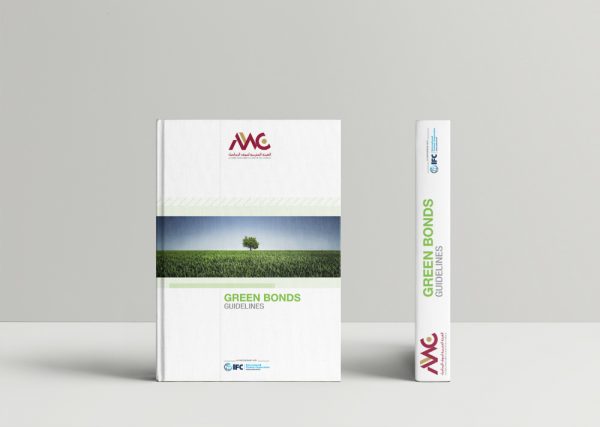
International Finance Corporation and AMMC have announced a set of guidelines for new financial instruments to address the issue of climate change. These guidelines were…

The Climate Investment Funds’ “The Power of 10: Shaping the Future of Climate Action” event took place on 28-29 January, 2019 in Ouarzazate, Morocco at the…

Morocco’s finance and business hub Casablanca Finance City (CFC) had raised 335 million dirhams ($ 35.8 mln) via a green bond to finance its environmentally…
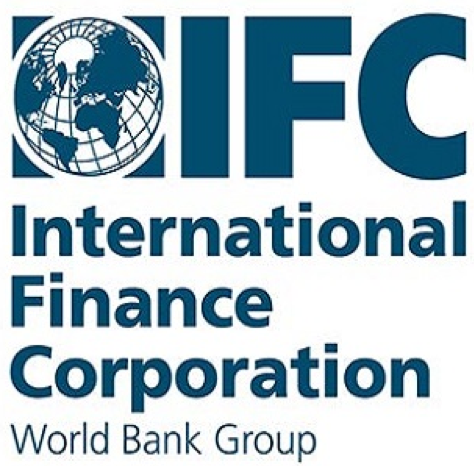
Globally, as much as $7 trillion a year in investments will be needed to achieve the Sustainable Development Goals by 2030. IFC research has identified…
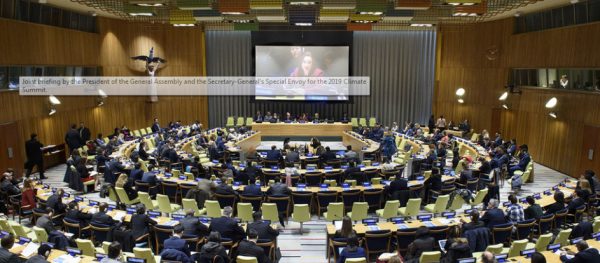
“2019 is a critical year, the “last chance” for the international community to take effective action on climate change, General Assembly President Maria Espinosa said on Thursday,…
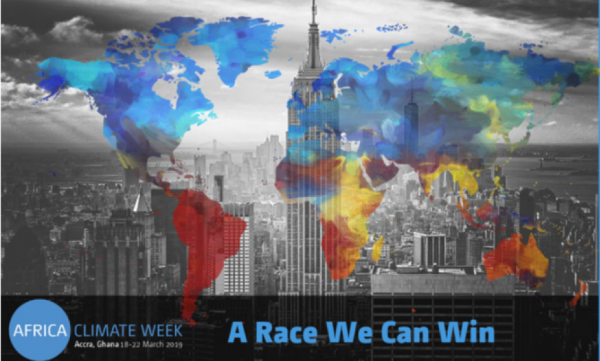
The Africa Climate Week (ACW) is the premier annual regional climate event, which seeks to promote climate action in Africa including mobilizing support for the…

Nigeria, Africa’s biggest oil producer, is set to become the first country on the continent to issue a security that raises funds for environmental projects…
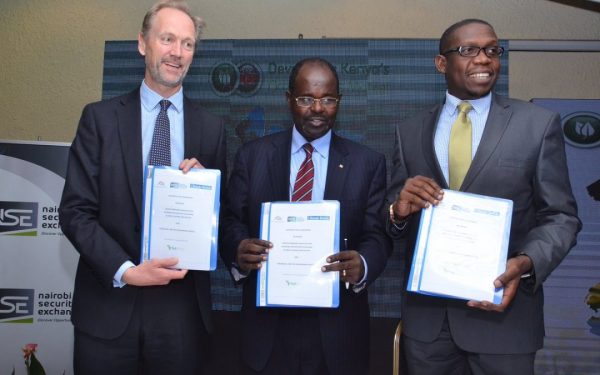
Kenya is on the path to developing a green finance market through its first green bond program. On the Friday March the 31stthe country announced…
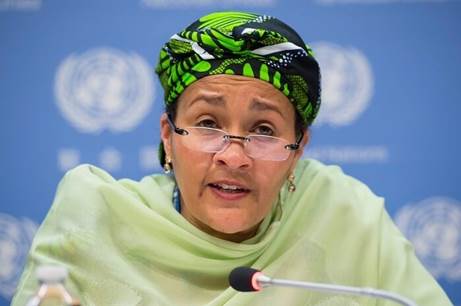
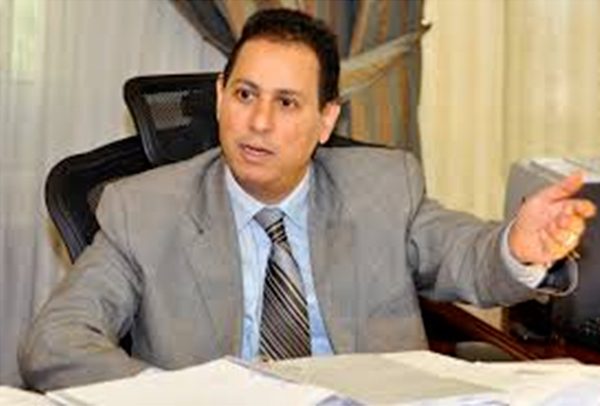
EGX formed a Sustainability Advisory Committee in 2016 whose main goal for the first year is to issue a Model Guidance for the sustainability report…
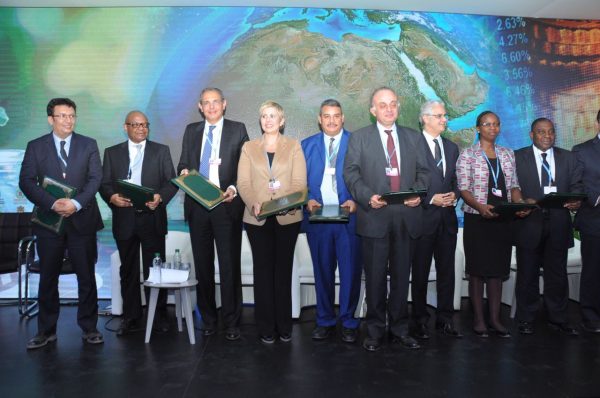
The COP of Action as it is often referred to, was an opportunity to start the important process of turning the UN’s Paris Agreement into…
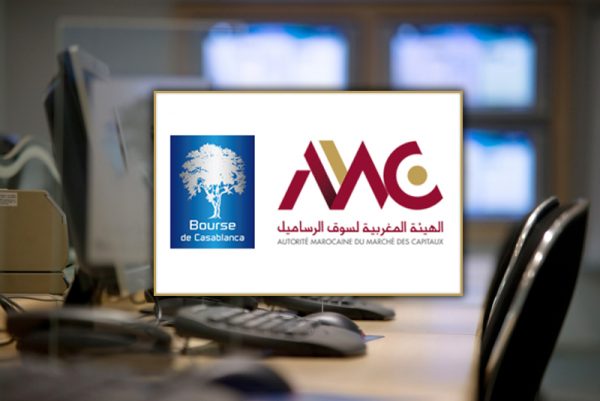
As part of the commitments made by capital market players in terms of sustainable development, the Moroccan Capital Market Authority (AMMC) and the Casablanca Stock…
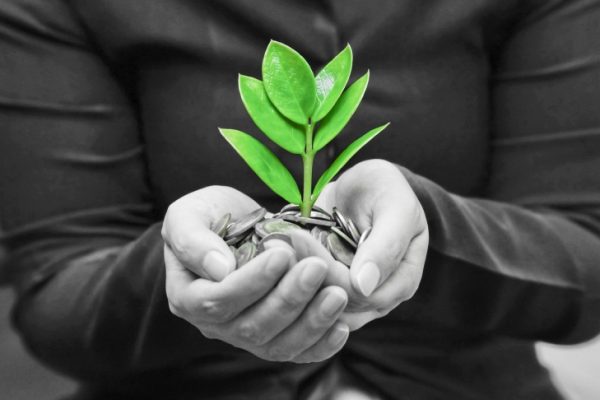
On September 28th, 2017, over 10 of the world’s leading financial centers today agreed to promote strategic action on green and sustainable finance, at the…
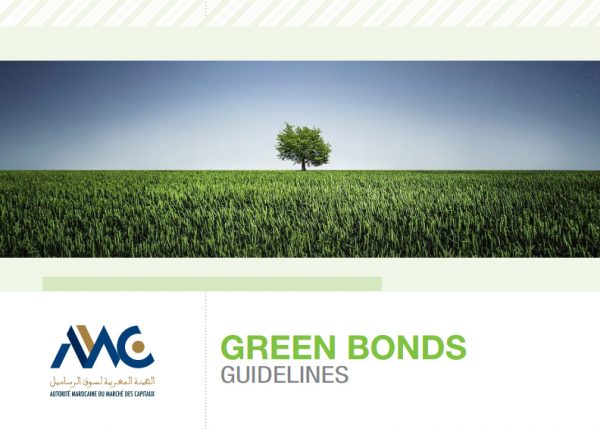
As part of its commitment to the development of climate finance, and in line with the Kingdom’s renewable energy objectives and the creation of a…
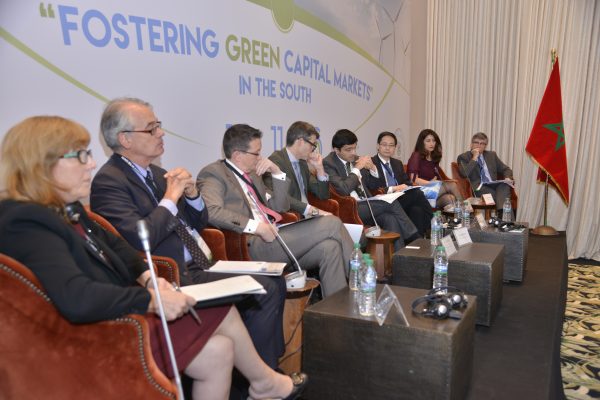
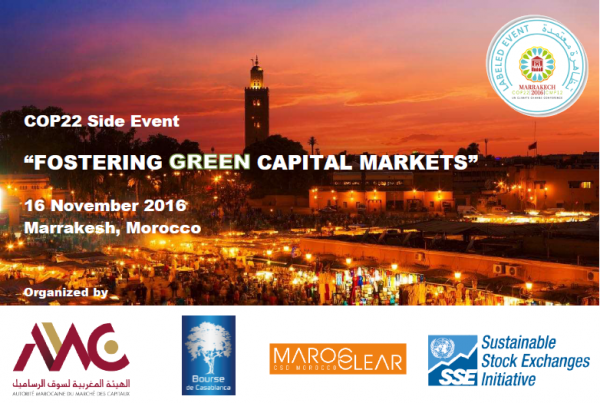
On November 2016 world leaders gathered for the COP22 in Marrakech to present their commitments to fighting climate change. Beside global political leaders, capital market…
Following “Implementing Green Capital Markets Program” organized in line with Marrakech Pledge on the 4th and 5th November 2019, AMMC and Toronto Centre publish this White Paper. It targets African capital market regulators and exchanges, Investor Groups, including pensions and insurances, governments and multi laterals. It aims to share the key factors that help the development of green capital markets globally, the examples of African countries that have developed or started to develop green capital markets, and the key action-oriented recommendations discussed in the program.
In 2019, the Inquiry started to turn the theory of inquiring into the praxis of implementing, by working with six countries that are keen to advance ambitious national sustainable finance agendas. Four of these countries (China, Kazakhstan, Mongolia, Nigeria) have pre-existing partial Roadmaps and two (India, Mexico) have pre-existing initiatives that will be scaled up. In Nigeria, for instance, the Inquiry is working towards reviewing the level of exposure to “green/brown lending” and providing strategic recommendations for the development of financial products. This work will directly assist the facilitation of green bond issuance from key sectors while also increasing finance flows to critical green infrastructure projects.
This report highlights the Inquiry’s work in 2019, including activities with countries that are incorporating sustainability into their financial architecture, and international collaboration with bodies such as the Network for Greening the Financial System (NGFS) and the Coalition of Finance Ministers for Climate Action (FMCo).